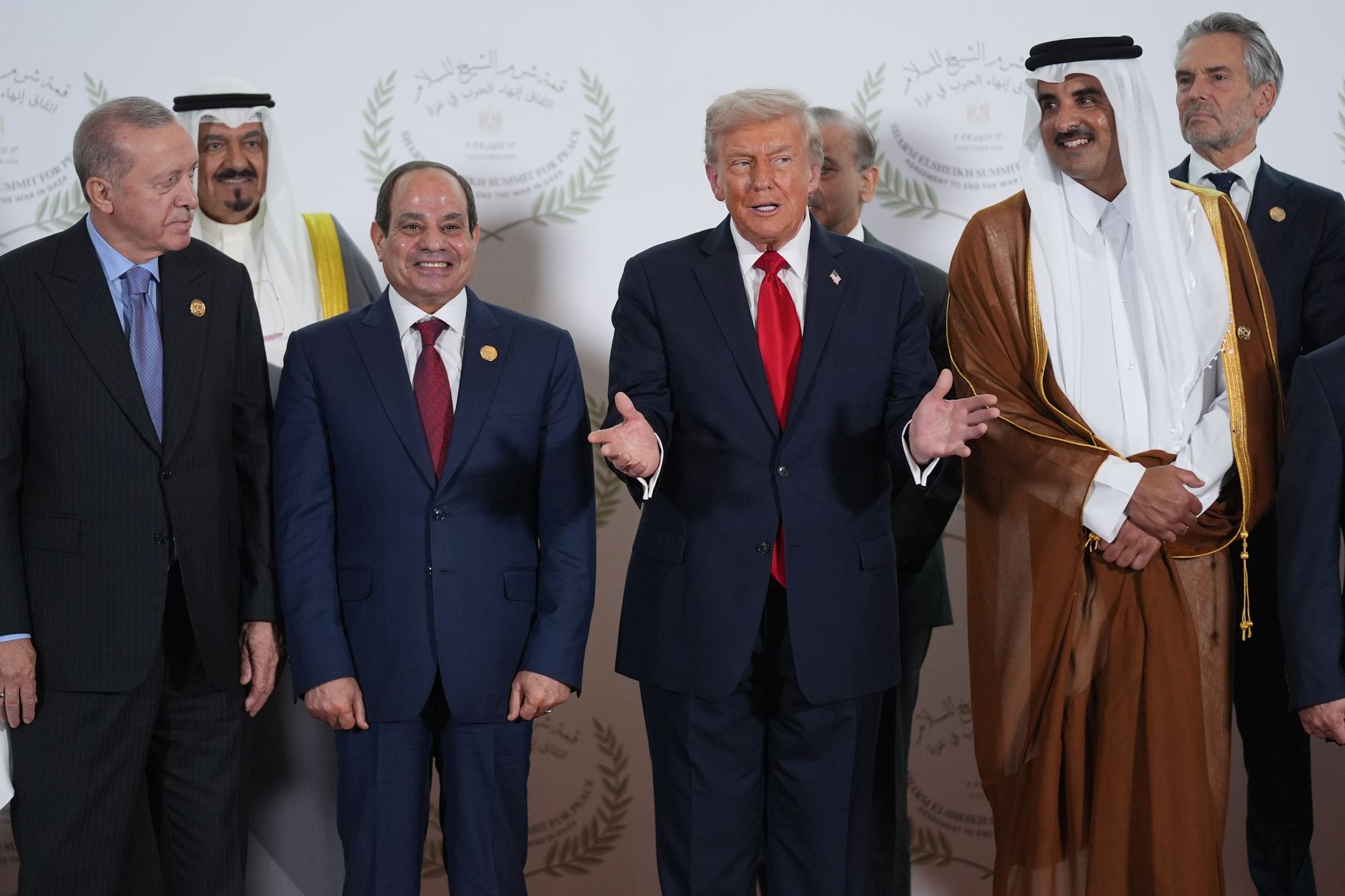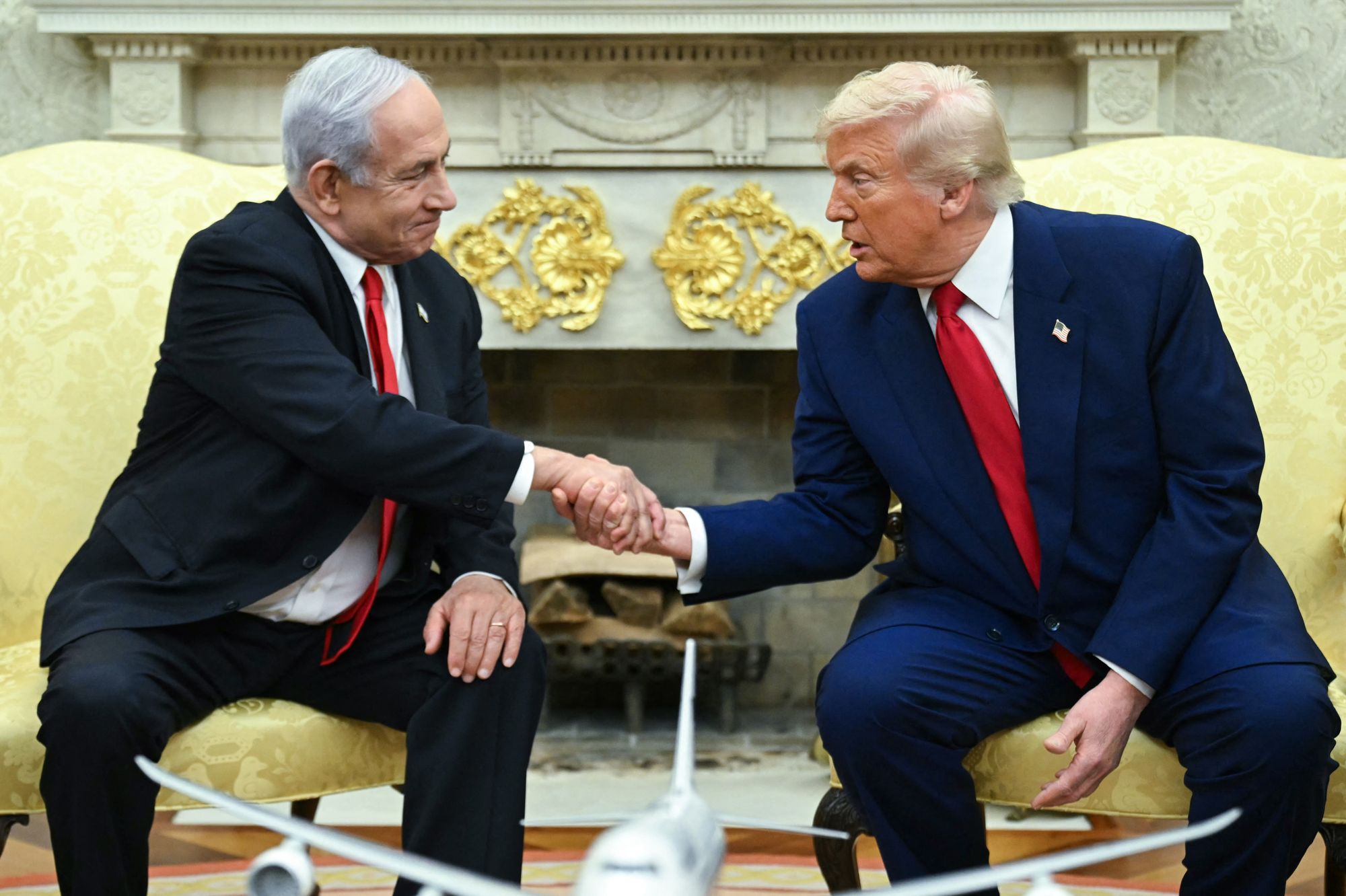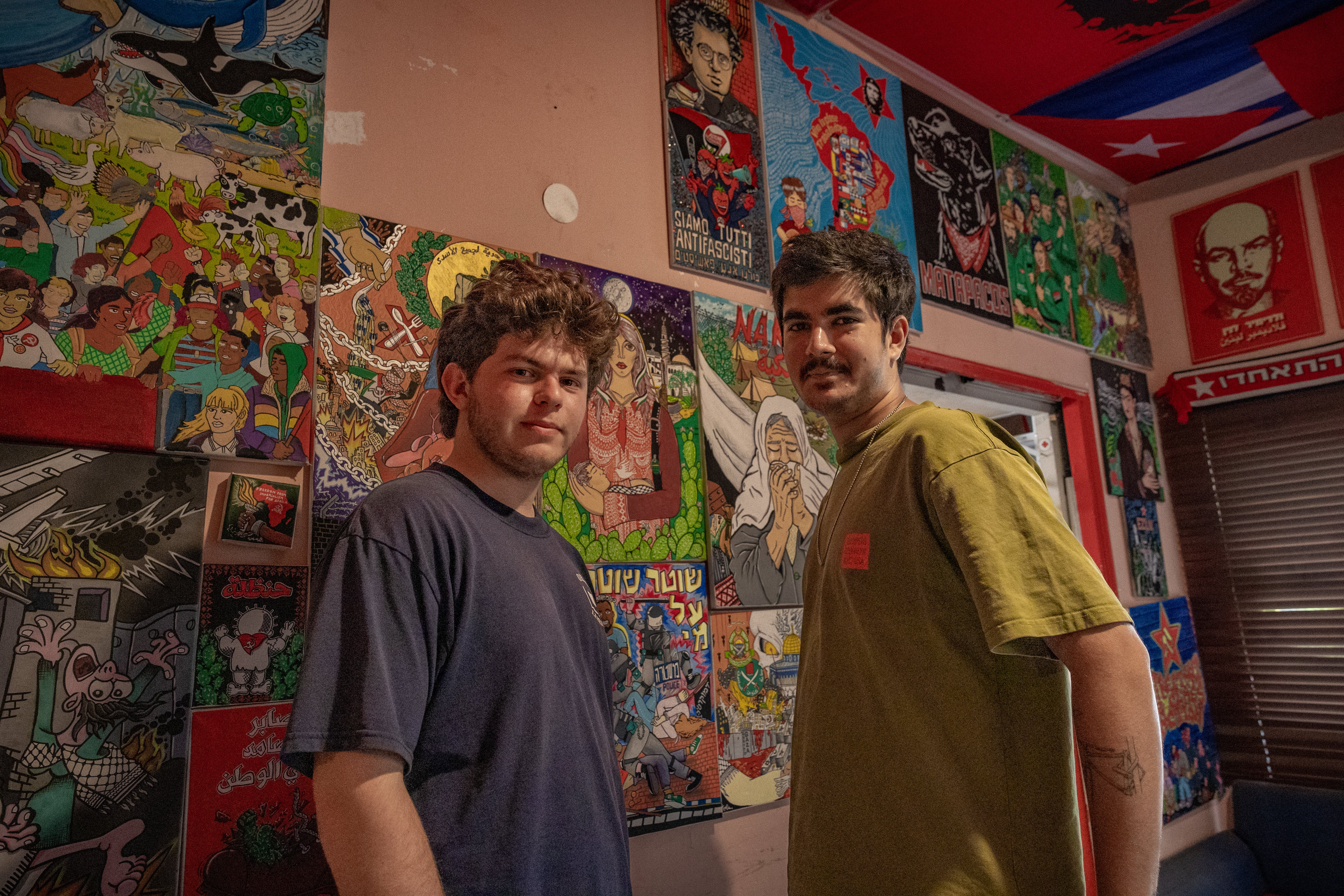
The ceasefire in Gaza is under severe strain just weeks after Donald Trump hailed a “new dawn” for the Middle East.
Despite international pledges, aid is failing to reach those in need, while reprisals and accusations of violations continue on both sides.
Regional powers such as Egypt, Qatar and Iran are navigating a delicate balance of influence, and the United States struggles to maintain its fragile ceasefire.
Morale among Israeli troops is said to be low, with rising refusals of reserve duty and suicide attempts, while extraordinary acts of courage and compassion continue in Gaza and Israel.
In a recent Q&A with Independent readers, I tackled your questions on aid delivery, peace negotiations, regional influence, and the human stories from the ground.
Here are some of them – and my answers:
Q: How much aid is getting into Gaza?
bloodwort
A: Not enough. Leading aid and UN agencies say supplies entering Gaza are far below what is needed to address the humanitarian catastrophe, where nearly all 2.3 million residents have lost their homes.
Trump’s ceasefire deal, which came into effect on 10 October, calls for 600 trucks of aid and commercial supplies per day – but senior UN officials say at least 1,000 are needed. Gaza’s local administration estimates only about 145 trucks actually reach their destinations due to Israeli restrictions.
Israel denies limiting aid, with COGAT, the military unit coordinating deliveries, stating that “hundreds of trucks carrying food, water, fuel, gas, medicines, medical equipment, tents and shelter supplies enter the Gaza Strip every day.” However, a senior Jordanian official said no aid from Jordan has entered Gaza since a September security incident that closed the corridor, leaving over 3,000 trucks waiting.
The Norwegian Refugee Council reported millions of shelter and non-food items are stuck in Jordan, Egypt and Israel awaiting approval. Since the ceasefire, Israeli authorities have rejected 23 requests from nine aid agencies to deliver urgently needed shelter supplies – nearly 4,000 pallets or 1,699 tonnes – and even authorised shipments face “prolonged and opaque customs requirements.”
The needs are enormous and urgent, especially as winter approaches. Palestinians in Gaza are facing unprecedented destruction from the Israeli offensive. An estimated 60 million tonnes of rubble needs to be removed, requiring the entry of heavy machinery – without this removal, even temporary shelter installation is extremely difficult.
More than 1.45 million people need emergency shelter support. There are tens of thousands of gravely injured and sick people needing medical supplies and medical evacuation. The numbers are unimaginable.
Q: What stories or people have stayed with you most from Gaza and Israel?
MattAllenby
A: I have been covering Israel/Palestine for more than 15 years, but the last two years have been beyond anything imagined in our worst nightmares.
I believe that the point of reporting on crisis and conflict is to work towards making your job obsolete. And one way to do that is to platform the extraordinary people who are forced to endure it. It is also a source of hope.
The first that comes to mind is an ambulance driver in Gaza City, who told me how he was leaving for his shift as his son, a nurse in a nearby hospital, was coming home from his busy night shift. They said goodbye, he got into his ambulance and set off. Minutes later, he received a call from the coordination centre saying that Israel had bombed a building in his district. He was the closest. Could he go? He drove towards the coordinates, only to find that the bomb had destroyed his own apartment building. He had to dig with his hands through the rubble for his son, his wife, his other children and his mother. Most of them were killed. And still he kept going. He returned to work. He went back to digging families out of the rubble, to rescuing children. I have no idea how someone goes through that and carries on.
I cannot tell you the number of other extraordinary people in Gaza: medics who stayed with their patients as Israeli forces besieged and bombed their hospitals; who were then arrested and held without charge; who spoke of torture; and who, on returning to Gaza, went straight back to treating patients. Each story haunts you.
In Israel, one interview that stayed with me in particular was with Maoz, whose parents were killed on 7 October. While the prevailing narrative within Israel was one of revenge at the end of 2023, he was one of the earliest voices to call for a ceasefire, to say unequivocally that the destruction and collective punishment of Gaza was wrong, that violence does not fix violence.

He told me he was able to reach that point because, in the wake of the horrific 7 October attacks, he received a Facebook message from a Palestinian activist called Aziz, whose brother had years before been tortured to death in an Israeli prison. Aziz reached out to Moaz on social media to say he was deeply sorry for his loss.
Both men had been through pain that would usually separate people, yet they teamed up as peace builders. Despite facing hatred from all sides, they have been touring the world with a mutual, nuanced, practical, informed and sustainable vision of peace.
To experience such searing pain and yet still see the suffering of others, to reach across that seemingly impenetrable divide, requires the deepest well of compassion, that all of us can learn from.
Q: Aside from Trump, what role are regional powers playing?
Jase
A: While Trump and his team were critical in getting this current ceasefire over the line, as they got Israel to the table, none of these conversations would have even been hosted without countries like Qatar and Egypt.
For a start, the political bureau of Hamas, and Hamas’s leaders in exile, have been hosted in Qatar. Qatari officials told me on several occasions, frustrated that both sides had no real interest in committing to peace talks, that they had said they would no longer act as negotiators and would ask the political bureau to leave, but were actually requested by the US and Israel to remain in their role.
The last ceasefire, which came into effect in January, was hammered out in Doha. In the eleventh hour, the Qatari prime minister personally shuttled between the two negotiating teams in a bid to get it over the line. Qatar – that has been perceived as being aligned with the Muslim Brotherhood axis – has played a major role as one of the sole conduits to Hamas and therefore as a guarantor of the agreements.

Similarly, in Egypt, its top negotiators and officials have been integral in getting all sides to the table and finalising the details of the deals. For Egypt, Gaza is not just a regional concern but a national-security issue. Cairo had been increasingly alarmed by the extremist rhetoric coming out of the Israeli government suggesting the forcible displacement of the Palestinian population of Gaza into Sinai – something that was intermittently and off-handedly endorsed by Trump.
Apart from that being a war crime and devastating for Palestinian self-determination and the region, it would effectively make Egypt responsible for Israel’s security. Cairo has likely played a major role in convincing the US administration of the error of such a strategy.
Iran plays a different role as chief backer to Hamas and other armed proxies in the region, such as Hezbollah in Lebanon, Syria and Iraq, and the Houthis in Yemen. Their influence has waned since 2023, as Israel opened up multiple fronts of the war against their proxies.
Q: How can the US lead negotiations when backing Israel?
NormanBlunt
A: The United States is the single largest supplier of weapons to Israel, and its most powerful and most involved backer. While there has been a lot of praise for Trump for pushing the latest ceasefire deal over the line (and talk of a Nobel Peace Prize nomination), there has also been a lot of criticism, with many pointing out that the quickest way to force Israel to halt its offensive on Gaza would have been to freeze arms and ammunition supplies.
That said, I regularly speak to Hamas, Israeli government sources, officials from major regional countries involved such as Qatar and Jordan, negotiators and those briefed on the talks. Pretty much all admitted that the only person who could get this current deal over the line, and the only person who could get Israel back to the negotiating table to discuss the crucial second and third phases of this plan, was President Trump. He is the only person who has that level of sway over Israel, even if he does not wish to deploy all the tools in his toolbox.
An exchange of citizens, a cessation of hostilities, a partial withdrawal and some aid delivery (all of which have intermittently failed at different points) is only the beginning.

Israel, Palestine and the wider region will remain trapped in a dystopian, ever-violent Groundhog Day until there is an honest international commitment to addressing the fundamental questions that have gone unanswered for decades.
These include Palestinian self-determination and Israeli occupation; accountability for violations of international law; and a path to end the unrelenting layers of trauma and violence, allowing for peace and security that is fair for all.
I do not have a great deal of faith that a truly just peace will emerge from this nightmare, but I hope it will be more than a series of photo opportunities.
Q: What is the mood in the Israeli military?
Sabra
A: Warning – this answer addresses suicide, which might be a trigger.
From what I have been told, morale is low. There was particular resistance to Benjamin Netanyahu’s insistence in the closing months of the war on Gaza that the military keep the conflict going and push into Gaza City. I was told by government sources that even the Israeli military chief of staff was against the plan.
However, why morale is low is essentially speculation. I cannot, for example, say whether it is directly linked to conclusions by bodies such as the UN Commission of Inquiry that Israel (and its forces) have committed genocide in Gaza. Anecdotally I have been told people have been concerned by that, also by Israel becoming an international pariah, also by the comparatively high death toll among Israeli soldiers and also by the relentless and long reservist call-ups.
In terms of evidence of low morale – I would point to Israeli media reports on a surge in suicide attempts among soldiers since October 2023.
Last month, the Knesset, the Israeli parliament, released its latest report on the issue, stating there had been a sharp rise in suicide attempts among soldiers since 2024. Israeli media reported that the Knesset body recorded at least 279 attempts between January 2024 and July 2025 alone.
Separately, I have been told – and Israeli media has also reported – that there has been a significant rise in Israeli soldiers refusing reserve duty as the war dragged on, as the death toll among Israeli soldiers climbed, and as international backlash soared.

Yesh Gvul, an Israeli movement that supports refuseniks (essentially conscientious objectors, those who refuse mandatory service) and reservists who do not want to fight again, told me in August that their hotline, which usually receives around 30 calls a year, had received more than 200 calls since January alone.
I also interviewed a small but growing group of Israeli teenagers who burned their call-up papers, telling me they did so as they believed their country was committing genocide.
You can read more here.
These questions and answers were part of an ‘Ask Me Anything’ hosted by Bel Trew at 4pm GMT on Wednesday 5 November. Some of the questions and answers have been edited for this article. You can read the full discussion in the comments section of the original article.
For more from Bel sign up to our weekly On The Ground newsletter.
Tim Davie to address BBC staff after Donald Trump’s legal threat
Outgoing director general Tim Davie to address staff: Live
Senate votes to reopen the government as health care future remains uncertain
British journalist Sami Hamdi to be released following ICE detention, family say
Why Syrian president’s Trump visit is so significant - but will it be a slam-dunk?
Syrian president al-Sharaa plays basketball with US officials ahead of Trump summit







